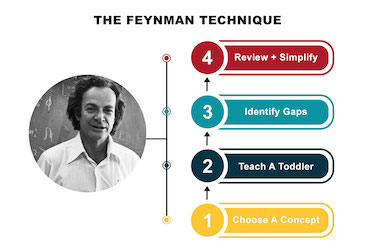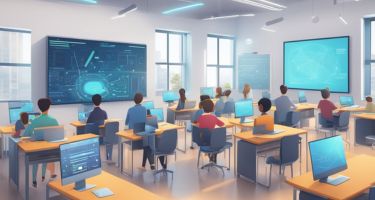Lifelong learning is essential for personal and professional growth in our rapidly changing world. Engaging in continuous education helps us develop new skills and adapt to shifting job markets, making us more competitive in our careers. By committing to lifelong learning, we position ourselves to seize new opportunities and face challenges with confidence.

In today's society, education doesn't stop after formal schooling. We can explore various avenues, including online courses and community workshops, to enhance our knowledge. Embracing this approach not only benefits us individually but also contributes to a more skilled and adaptable workforce as a whole.
Key Takeaways
- Lifelong learning is vital for adapting to change and improving skills.
- Continuous education enhances individual opportunities and societal development.
- Embracing technology can facilitate our lifelong learning journey.
The Concept of Lifelong Learning

Lifelong learning is fundamental to our growth throughout life. It encompasses various forms of education and development, both formal and informal. By understanding its history and modern definitions, we can appreciate its significance better.
Historical Perspectives
The idea of lifelong learning has roots in ancient philosophies. For instance, the Greeks valued continuous learning as a pathway to wisdom. In the Middle Ages, monasteries became centres of knowledge, promoting learning beyond childhood.
In the 20th century, our view expanded dramatically. Educational theorists like John Dewey emphasised learning through experience. The emergence of adult education programmes further supported the notion that learning does not cease after formal education ends. During this time, people began to recognise that personal development can happen at any stage of life.
Modern Definitions
Today, lifelong learning is broadly defined. It includes not only formal education but also informal learning experiences. These may involve workshops, online courses, or self-directed study.
We understand lifelong learning as a vital part of personal development. It helps us adapt to changes in the job market and societal needs. As skills become outdated, the need for reskilling and upskilling increases.
By embracing lifelong learning, we acknowledge that education is a journey rather than a destination. This mindset encourages us to seek knowledge continuously, regardless of our age or background.
Benefits of Lifelong Learning

Engaging in lifelong learning offers numerous advantages that enhance our personal lives and foster professional development. We can also strengthen social cohesion while contributing to economic growth. Here, we'll explore the key benefits in depth.
Personal Advantages
Lifelong learning significantly improves our quality of life. Pursuing new knowledge and skills can lead to greater satisfaction and personal fulfilment.
Activities such as taking courses or attending workshops keep our minds active. This mental stimulation helps reduce the risk of cognitive decline as we age.
Moreover, learning new skills like cooking or photography can boost our confidence. This sense of accomplishment encourages us to tackle new challenges and pursue hobbies.
Embracing lifelong learning can also expand our social circles. By engaging in classes or group activities, we meet like-minded individuals who share our interests. Forming these connections enriches our lives and enhances our overall well-being.
Professional Development
Continuous learning is essential for career advancement. In a fast-changing job market, acquiring new skills keeps us competitive.
Employers value workers who demonstrate a commitment to learning. We become more adaptable and can take on diverse roles. This flexibility often leads to increased job security and higher earning potential.
Additionally, engaging in professional development opportunities helps us build a strong network. Attending conferences, workshops, or online courses allows us to connect with industry professionals.
By enhancing our skills relevant to our field, we position ourselves for promotions and leadership roles. This not only advances our careers but also contributes to job satisfaction.
Social Cohesion and Economic Growth
Lifelong learning plays a key role in fostering social cohesion. As we learn together, we break down barriers and develop mutual understanding among diverse groups. This connection strengthens communities.
Investing in education and skills training can also drive economic growth. A well-educated workforce attracts businesses and encourages innovation. This creates more job opportunities and boosts local economies.
Furthermore, when individuals engage in lifelong learning, they contribute positively to society. They become informed citizens who participate in community activities and decision-making processes. This engagement enriches public life and promotes a stronger, more cohesive society.
In summary, the benefits of lifelong learning extend beyond individual growth. They enhance our personal lives, propel our careers forward, and enrich the communities we live in.
Implementing Lifelong Learning Strategies

Lifelong learning is essential for personal and professional growth. By adopting various strategies at individual, organisational, and governmental levels, we can enhance our skills and adapt to the changing demands of the job market.
Individual Approaches
As individuals, we play a crucial role in our lifelong learning journey. We can actively seek out retraining opportunities in our fields. This can include enrolling in online courses, attending workshops, or participating in professional networks.
To personalise our learning, we should identify our skills gaps and set specific learning goals. Investing time in learning new technologies or methodologies relevant to our industry can improve our employability. Regularly seeking feedback from peers and mentors is also beneficial. This helps us track our progress and adjust our strategies accordingly.
Organisational Roles
Organisations also have a responsibility to foster a culture of lifelong learning. We should encourage our employers to implement training programs that align with both company goals and employee aspirations. Setting up collaborative learning groups can enhance teamwork and innovation.
Employers should consider providing incentives for continuous education, such as funding for courses or time off for study. By creating personalized learning paths, organisations can meet individual needs while enhancing workforce skills. This investment not only helps employees but also leads to increased productivity and job satisfaction.
Government Policies and Lifelong Learning Entitlement
Government policies play a significant role in promoting lifelong learning. Policies that ensure lifelong learning entitlement are essential for equitable access to education and training. By funding accessible learning programs, the government can help bridge the skills gap across different industries.
It is vital for us to advocate for legislation that supports flexible learning options, enabling individuals to retrain throughout their careers. Government-backed initiatives can provide guidance on best practices for lifelong learning strategies. This can lead to a more skilled workforce that meets the demands of a rapidly changing economy.
Challenges and Barriers

Lifelong learning presents various challenges that can hinder our progress. Key obstacles include accessibility to resources, the impact of technological disruption, and the recognition of acquired skills. Understanding these barriers is crucial for us to navigate our learning journeys effectively.
Accessibility and Resources
Accessibility is a significant barrier for many pursuing lifelong learning. Not everyone has equal access to educational resources, such as libraries, online courses, or funding. This gap can prevent individuals from enhancing their skills.
Key considerations include:
- Cost: Many educational programmes can be expensive. This may deter individuals from seeking further education.
- Location: Those in remote areas often have limited access to institutions offering relevant courses.
- Awareness: People may not be aware of Available resources or programmes suited to their needs.
We must advocate for improved access to learning resources to support everyone’s educational journey.
Technological Disruption
Technological disruption affects how we engage with lifelong learning. Rapid advancements can make existing skills obsolete, creating anxiety about staying relevant in our fields.
We must adapt to new tools and platforms actively.
Challenges include:
- Keeping pace with technology: Constant updates require us to engage in ongoing training.
- Digital skills gap: Not everyone has the necessary skills to navigate new technology effectively.
- Information overload: The sheer volume of resources available can be overwhelming, making it difficult to identify worthwhile content.
Addressing these areas can help us engage with new technologies more confidently.
Recognition and Validation of Skills
Recognition and validation of skills acquired through informal learning are vital for our growth. Many employers still favour traditional qualifications over experiential learning.
Important aspects are:
- Lack of standardisation: There is often no clear benchmark for recognising skills gained outside formal education.
- Credibility concerns: Employers may undervalue skills learned through online courses or self-study.
- Career advancement: Without recognition, we may struggle to leverage our skills for promotions or new roles.
We should push for workplace policies that better recognise diverse learning pathways to ensure our skills are acknowledged and valued.
The Role of Technology in Lifelong Learning
Technology plays a vital role in supporting lifelong learning by providing access to e-learning platforms, virtual classrooms, and various online resources. These tools enable us to enhance our skills and knowledge swiftly and efficiently.
E-Learning Platforms
E-learning platforms offer a wide range of courses across multiple subjects. These platforms, such as Coursera and Udemy, allow us to learn at our own pace and convenience.
With a variety of formats, including videos, quizzes, and discussion forums, we can engage with the material in different ways. The flexibility of these platforms makes lifelong learning more achievable, as we can easily fit learning into our busy lives.
Additionally, many e-learning platforms include features like progress tracking and certificates of completion. These functions help motivate us to stay on course and acknowledge our achievements.
Virtual Classrooms
Virtual classrooms revolutionise the way we participate in educational experiences. They enable real-time interaction with instructors and peers, making learning more collaborative.
Tools like Zoom and Microsoft Teams facilitate live discussions, group work, and Q&A sessions. This instant communication fosters a sense of community among learners.
Moreover, virtual classrooms allow us to access high-quality education from anywhere in the world. This global reach means we can learn from experts and colleagues regardless of geographical limits.
Online Resources and Networking
Online resources, including articles, videos, and podcasts, complement formal learning by providing additional information. Websites like Khan Academy and TED offer valuable insights that enhance our understanding of various topics.
Networking platforms like LinkedIn enable us to connect with professionals and experts in our fields. This interaction allows us to share knowledge, exchange ideas, and seek mentorship opportunities.
By leveraging both online resources and networking, we can broaden our perspectives and enhance our current skills. These tools empower us to remain relevant in our careers and adapt to the changing job market.
Lifelong Learning in the Business Environment
In today’s competitive landscape, we recognise that investing in lifelong learning is crucial for sustainable success. By prioritising employee development and implementing effective training programmes, we can enhance professional growth and boost our overall business performance.
Investing in Employee Development
We see employee development as a strategic investment rather than a cost. By providing opportunities for ongoing education and skill enhancement, we empower our workforce to adapt to changing market demands. This investment leads to increased job satisfaction and employee retention.
Furthermore, when we invest in training, we can expect a solid return on investment. Skilled employees can contribute more effectively to projects, leading to improved productivity and innovation. Businesses that prioritise development often experience less turnover, saving costs associated with recruitment and training new hires.
Corporate Training Programmes
Implementing structured corporate training programmes allows us to standardise learning across the organisation. These programmes should be tailored to address the specific needs of our teams and the industry we operate in.
We can offer various formats, including workshops, online courses, and mentoring. Evaluating the effectiveness of these programmes is essential. We must gather feedback and assess changes in performance to ensure that our training efforts align with our business objectives. Comprehensive training programmes can create a culture of continuous improvement and knowledge sharing within our organisation.
Impact on Business Growth and Competitiveness
Lifelong learning directly impacts our growth and competitiveness. By cultivating a skilled workforce, we position ourselves to respond quickly to new challenges and market opportunities. Companies that encourage a culture of learning often outperform their competitors.
Moreover, skilled employees tend to drive innovation, developing new products and services that meet customer needs. As we build a reputation for investing in our people, we enhance our brand image, attracting top talent in the industry. This combination of skilled, satisfied employees and innovative offerings ultimately leads to greater business success and sustainability.
Monitoring and Evaluating Lifelong Learning
To effectively support lifelong learning, we must gather and analyse data that informs us about the programmes in place. Monitoring and evaluating this learning process involves collecting insights, assessing programme effectiveness, and fostering feedback loops for continuous improvement.
Data-Driven Insights
Data plays a critical role in understanding the success of lifelong learning initiatives. We should focus on collecting a variety of data, such as participation rates, completion rates, and learner satisfaction.
Using surveys and polls can help us grasp public attitudes toward these programmes. Regularly analysing this data allows us to identify trends and areas needing improvement. We should look for key performance indicators (KPIs) that reflect the impact of learning initiatives on diverse age groups and educational backgrounds.
This systematic approach ensures we gather meaningful insights that guide our decisions. We can use quantitative methods for statistical analysis and qualitative feedback for in-depth understanding.
Assessing Programme Effectiveness
Evaluating the effectiveness of lifelong learning programmes requires a multifaceted approach. We can implement several evaluation methods, including formative and summative assessments.
Formative assessments help us understand how learners are progressing during the programme. In contrast, summative assessments provide insights into the overall success post-completion. Conducting regular evaluations helps us align our programmes with learner needs and industry demands.
We should also track learners' progress over time to measure skills acquisition and personal growth. Outcome-based evaluations can reveal if learners achieve desired competencies, making it easier for us to justify funding and resources.
Feedback Loops and Continuous Improvement
Establishing feedback loops is essential for enhancing lifelong learning experiences. We can use feedback from learners, educators, and industry stakeholders to identify strengths and weaknesses in our programmes.
Regular feedback sessions and anonymous surveys can encourage honest input from participants. This information is vital for making adjustments that improve course content and delivery.
Continuous improvement relies on our willingness to adapt based on the feedback we receive. By fostering a culture of openness, we can create more relevant and effective lifelong learning opportunities that meet the evolving needs of our learners and the community.
Frequently Asked Questions
In this section, we will address common queries regarding lifelong learning. These questions cover key examples, integration into the UK education system, the concept of Lifelong Learning Platforms, and how lifelong learning aids personal and professional development.
What are considered the key examples of lifelong learning?
Key examples of lifelong learning include adult education courses, online training programmes, and vocational skills training. These activities may take place in various settings, such as community colleges, universities, or online platforms.
How is lifelong learning incorporated into the UK education system?
In the UK, lifelong learning is supported through various educational policies and initiatives. These include funding for adult education courses and flexible learning options for those seeking to continue their education beyond traditional schooling.
What does the concept of a Lifelong Learning Platform entail?
A Lifelong Learning Platform refers to online systems that provide access to educational resources and programmes. These platforms facilitate learning by offering courses, training modules, and certification options for learners of all ages.
In what ways does lifelong learning contribute to personal and professional development?
Lifelong learning enhances personal and professional development by promoting skills upgrading and knowledge expansion. It allows individuals to adapt to changing job markets and improve their employability through continuous education and training.
How can individuals access their Lifelong Learning Entitlement?
Individuals can access their Lifelong Learning Entitlement by applying through the relevant funding bodies. This entitlement typically supports eligible learners in acquiring new skills or completing accredited courses.
What stages comprise the lifelong learning process?
The lifelong learning process comprises several stages: awareness of learning needs, setting learning goals, acquiring new knowledge, and applying skills in real-life situations. Each stage contributes to personal growth and skill enhancement.





















